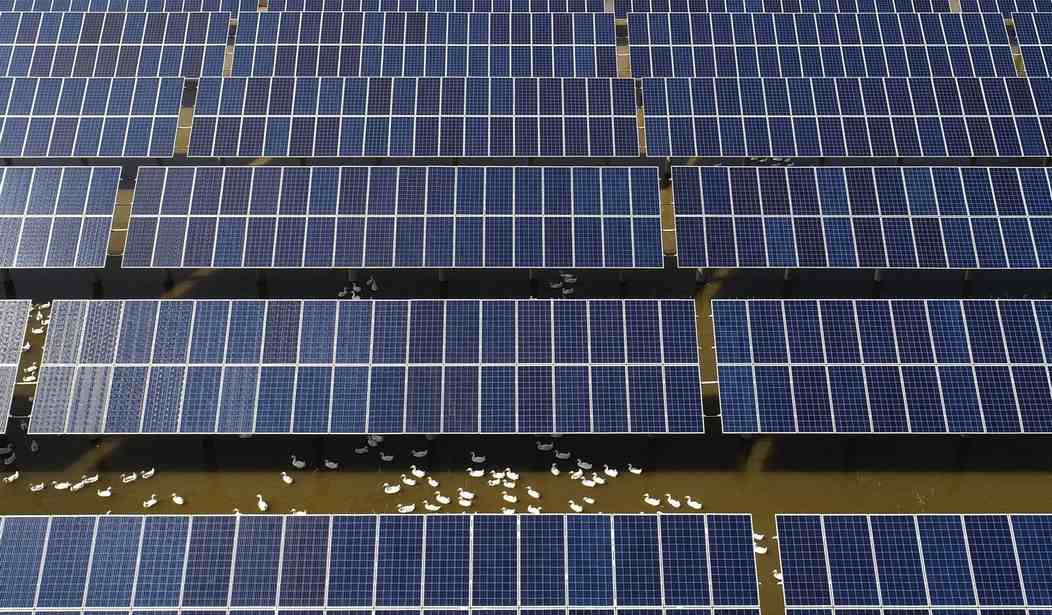Professor Vaclav Smil is a “Distinguished Professor Emeritus at the University of Manitoba, a Fellow of the Royal Society of Canada (Science Academy), and a Member of the Order of Canada.” He writes about energy and the environment and in a recent book argues that the transition to green energy is going to be a lot harder and take a lot longer than some people believe. Last Friday the NY Times published an interview with Professor Smil in which he argued that most people don’t really grasp the scale of the transition we’re talking about.
One of the fundamental arguments in your new book is that in order to have a serious discussion about an energy transition that gets us away from burning fossil carbon, we need a shared acknowledgment of the material realities of the world. Which is to say, an acknowledgment that our current way of life is dependent on burning that fossil carbon. But do you believe decarbonization should be the goal? And if rapid decarbonization isn’t feasible, then what’s the best way to stop heating the planet?
The most important thing to understand is the scale. An energy transition affecting a country of one million people is very different from a transition affecting a nation of more than one billion. It is one thing to invest a few billion dollars, another to find one trillion. This is where we are in terms of global civilization: This transition has to happen on a billion and trillion scales. Now, according to COP26, we should reduce our carbon dioxide emissions by 45 percent by 2030 as compared with 2010 levels. This is undoable because there’s just eight years left, and emissions are still rising. People don’t appreciate the magnitude of the task and are setting up artificial deadlines which are unrealistic. Now, to answer your question. If you assume that carbon dioxide is our deadliest problem, then of course we should decarbonize totally. But people say by 2050 — they call it “net” carbon emissions. The I.P.C.C., they don’t say zero, they say “net zero.” Leaving that cushion — one billion, five billion, 10 billion tons of CO2 we will still be emitting but taking care of by carbon sequestration. Is it realistic that we’ll be sequestering so rapidly on such a scale? People toss out these deadlines without any reflection on the scale and the complexity of the problem. Decarbonization by 2030? Really?
I understand the problem of setting difficult goals, but aren’t goals necessary for orienting our actions?
What’s the point of setting goals which cannot be achieved? People call it aspirational. I call it delusional. We are forging ahead with more S.U.V.s, we are building bigger houses, we want to invent new techniques to make more steel. But do we need all that more and bigger? I’m not against setting a goal. I’m all for realistic goals. I will not yield on this point. It’s misleading and doesn’t serve any use because we will not achieve it, and then people say, What’s the point? I’m all for goals but for strict realism in setting them.
Smil brings up a point I’ve made several times, world decarbonization can’t happen while China’s use of fossil fuels is still increasing.
Aren’t there credible pathways to decarbonizing the grid? Mark Jacobson at Stanford has said we have most of the technology we need to produce America’s power renewably and keep the grid secure and stable by 2035. Or what about the example of countries like Norway or Namibia that are producing a vast majority of their energy from renewables?
Check the China statistics. The country is adding, every year, gigawatts of new coal-fired power. Have you noticed that the whole world is now trying to get hands on as much natural gas as possible? This world is not yet done with fossil fuels. Germany, after nearly half a trillion dollars, in 20 years they went from getting 84 percent of their primary energy from fossil fuels to 76 percent. Can you tell me how you’d go from 76 percent fossil to zero by 2030, 2035? I’m sorry, the reality is what it is.
I don’t think it’s fair to call Smil a pessimist but he’s clearly not as hopeful that all of these changes will happen in anything close to the current deadlines. Making the kind of transition that environmentalists want to see would require agreement among major users of fossil fuels but is that realistic at this point?
You don’t have to have 200 countries to sign on the dotted line to reduce emissions. But you have to have at least all the big emitters: China, the United States, India, Russia. What are the chances today of Russia, China and the U.S. signing on the dotted line as to the actual reduction of emissions by 2030?
Getting the US and Russia to agree on anything right now seems like a pretty tall order. Russia’s economy is built around providing fossil fuels to other countries. China’s economy is built on expanding use of fossil fuels and factories that rely on that energy to provide products purchased by the rest of the world. Changing all of that in a decade really doesn’t sound very realistic.
The whole thing is worth reading. The final line from Professor Smil seems to sum up his views pretty well: “You have to recognize the realities of the world, and the realities of the world tend to be unpleasant, discouraging and depressing.”








Join the conversation as a VIP Member